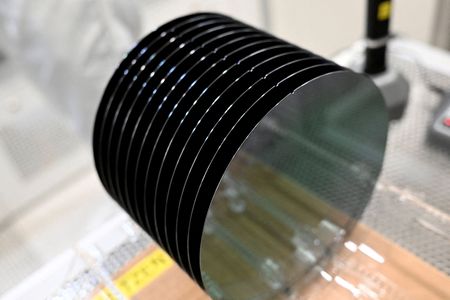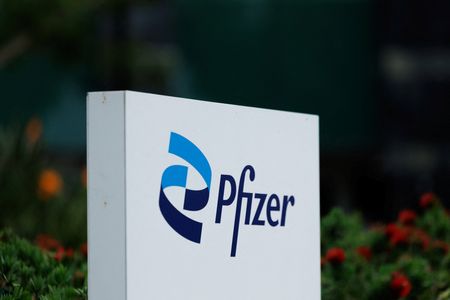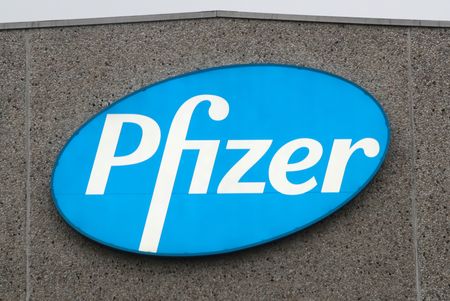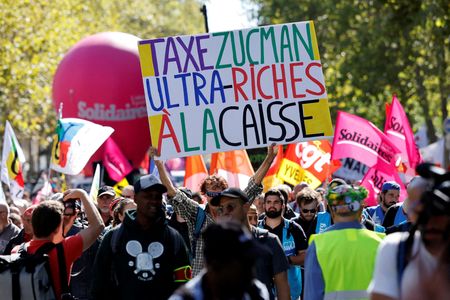By Che Pan and Wen-Yee Lee
BEIJING/TAIPEI (Reuters) -Dutch chipmaker Nexperia has suspended supplies of wafers to its Chinese assembly plant, according to a letter addressed to its customers that was reviewed by Reuters, which could exacerbate a supply squeeze that is worrying automakers worldwide.
The letter, dated October 29 and signed by Nexperia interim CEO Stefan Tilger, said the October 26 suspension affecting its plant in Dongguan, in southern China’s Guangdong province, was “a direct consequence of the local management’s recent failure to comply with the agreed contractual payment terms.”
Nexperia has been locked in a dispute with its Chinese unit after the Dutch government took control of Nexperia from its Chinese owner Wingtech Technology on September 30. It also removed its Chinese CEO, citing concerns that its technology could be appropriated by Wingtech.
Nexperia’s Chinese unit had resumed supplying semiconductors to local customers but stipulated that all sales to distributors would need to be settled using the Chinese yuan. Previously, transactions had been in foreign currencies like the U.S. dollar.
LARGE VOLUMES OF CHIPS
The company produces large volumes of chips in the Netherlands that are widely used in the automotive and consumer electronics industries. Some 70% of the European-produced chips are packaged in China and sold mostly to distributors.
“While we have maintained shipments for as long as commercially feasible, continuing the current flow of supply from our front-end sites is no longer justifiable,” the letter said.
“Unless these contractual obligations are fully satisfied, we cannot resume wafer supply to the site. Nexperia is developing alternative solutions to ensure (that) supply (is) continuing to our customers.”
Nexperia added that the decision did not reflect an intention to withdraw from its site in Dongguan or the Chinese market as a whole, adding that it remained committed to finding a resolution.
Nexperia said it is financially independent of Wingtech and it does not raise capital from Wingtech, the letter showed.
A spokesperson for Nexperia confirmed it sent the letter and the company could not comment further. Nexperia China did not immediately respond to requests for comment. Wingtech declined to comment.
A Dutch government spokesperson referred questions about the wafer shut-off to Nexperia, saying the move had been a corporate decision while state intervention “concerns the preservation of production capacity and is not aimed at the company’s day-to-day operations”.
The Netherlands is in discussions with European governments and the European Commission, as well as Chinese authorities, “to work toward a constructive solution,” the spokesperson said.
EU tech chief Henna Virkkunen said after a meeting with Nexperia management on Friday that they are working toward a “diplomatic breakthrough” to resolve the situation, but in the meantime they are looking at unspecified short- and medium-term measures to relieve European industry.
IMPACT ON PRODUCTION
Court filings showed that the seizure by the Dutch government came as U.S. pressure was rising on Nexperia after Wingtech was placed on a restricted-export list, though Dutch authorities say governance shortcomings were the trigger.
On October 4, China’s commerce ministry blocked Nexperia from exporting chips from China.
Industry bodies have sounded the alarm over the possible impact on production, with Stellantis saying on Thursday that it had set up a “war room” to monitor the situation.
Japanese automaker Nissan said it had enough chips to last until the first week of November without disruption.
Some Nexperia products that used to cost just a few Chinese cents have gone up to two or three yuan each over the past two weeks, more than 10 times their original price, according to a source familiar with the matter.
(Reporting by Che Pan in Beijing and Wen-Yee Lee in Taipei; Additional reporting by Foo Yun Chee and Toby Sterling. Writing by Brenda Goh; Editing by Jacqueline Wong, Thomas Derpinghaus and Richard Chang)











